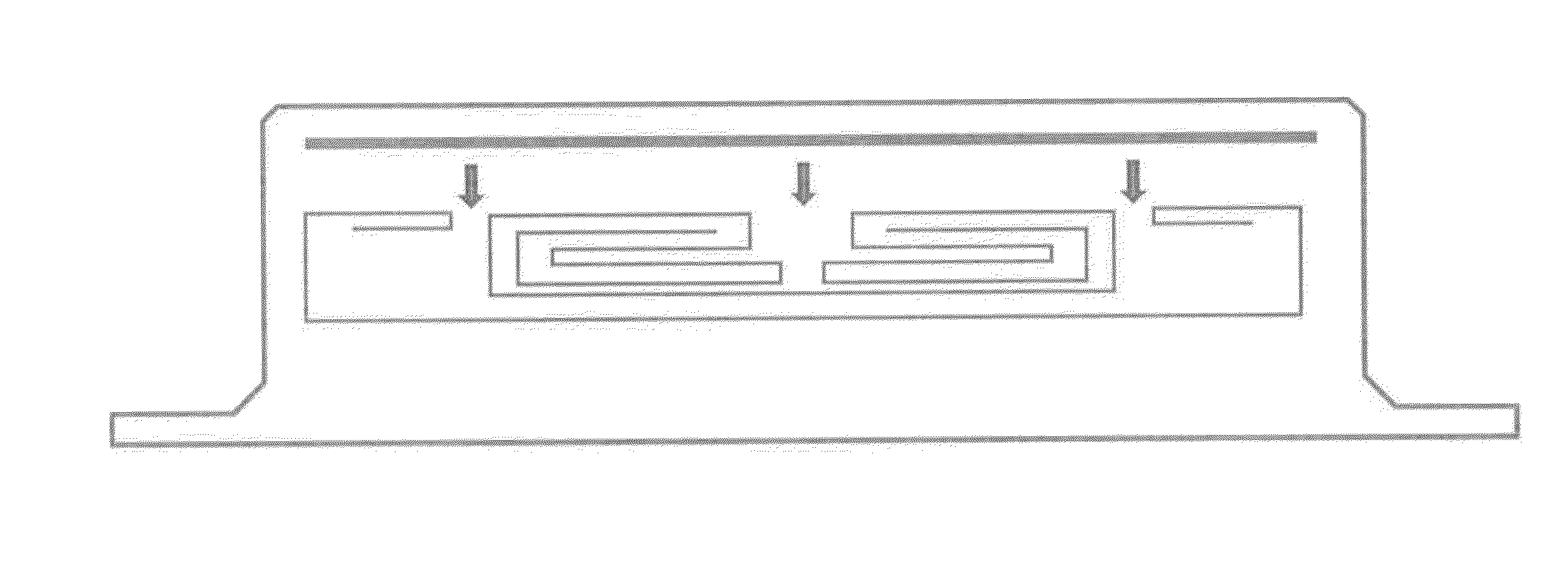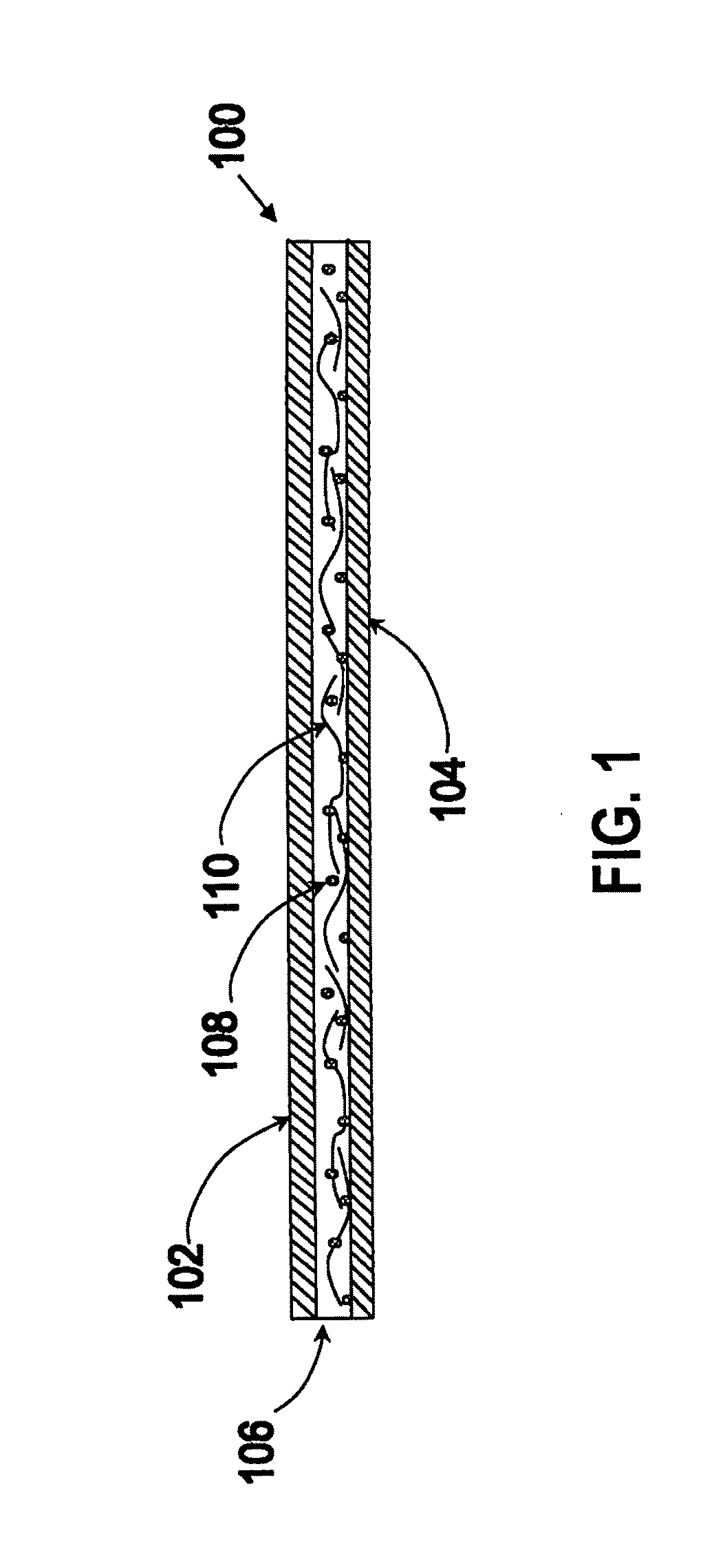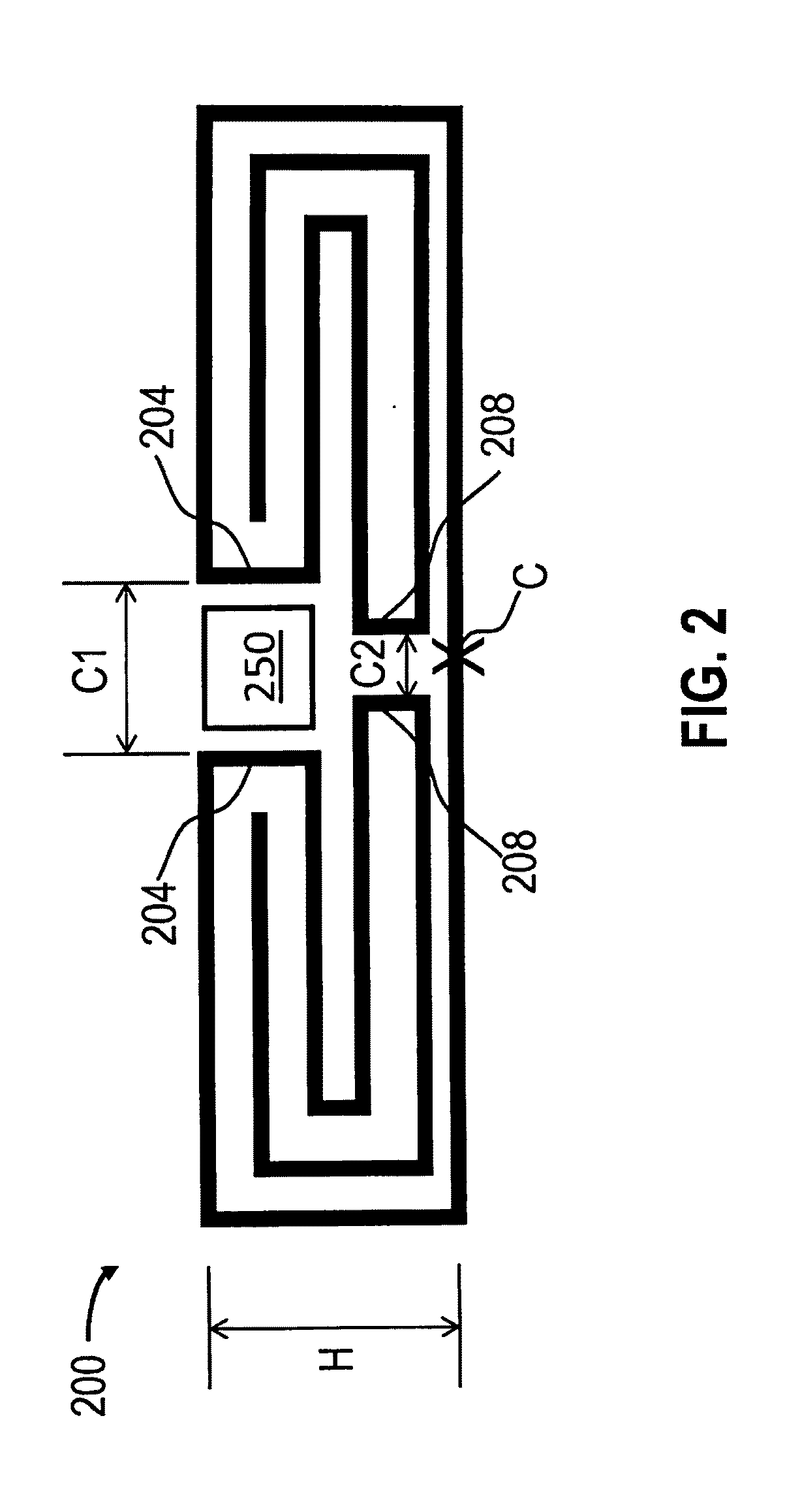Absorbent article with multi-layer folded absorbent core
a technology of absorbent articles and absorbent cores, which is applied in the field of absorbent garments, can solve problems such as leakage of absorbent articles, and achieve the effects of improving absorbent properties, good core utilization, and rapid liquid acquisition
- Summary
- Abstract
- Description
- Claims
- Application Information
AI Technical Summary
Benefits of technology
Problems solved by technology
Method used
Image
Examples
example 1
[0160]A laminate was produced by providing a continuous moving substrate of 17 gsm 3995 tissue, which, for example, is commercially available from Dunn Paper in East Hartford, Ct. A first layer of 30 gsm W125 SAP, which, for example, is commercially available from Nippon Shokubai was mixed with 1.3 gsm SP507 hot melt glue fibers, which, for example, is commercially available from Savare in Delaware, Ohio, to form a first mixture. The 1.3 gsm SP507 hot melt glue fibers was dispensed by Uniform Fiber Deposition (UFD) hot melt spray head from ITW Dynatec in Hendersonville, Tenn. A second layer of 70 gsm SAP was mixed with 1.6 gsm hot melt glue fibers to form a second mixture. The second mixture was deposited on top of the first mixture, and a second continuous moving substrate of 3995 tissue was placed on top of the hot melt adhesive. The resulting laminate was wound into a roll and comprised SAP asymmetry exceeding 3:1.
[0161]A size 4 diaper was produced using the Example 1 laminate. T...
example 2
[0162]A laminate was produced in a similar manner to that described in Example 1. A However, a W211 SAP type was used. Further, rather than two plies of substrate, three plies of 3995 tissue was used. Between each tissue layer was disposed a layer of a mixture of 23.5 gsm SAP and 1.3 gsm SP507 adhesive. The Example 2 laminate was made into a diaper in the same or a substantially similar manner as the laminate in Example 1.
[0163]One-Part Cores having six layers were constructed with absorbent laminates of 89 gsm S125D SAP and 47 gsm W211 SAP. These six-layer cores were made with a laminate of approximately 385 mm in length and approximately 533 mm in width (e.g., and only approximately 513 mm SAP in width). The width of the folded core was approximately 98 mm, and the width of the central channel was approximately 10 mm. Measured values of AAP were greater than predicted from SAP properties because of a core-structure-induced increase in SAP efficiency. The folded core geometry with ...
PUM
 Login to View More
Login to View More Abstract
Description
Claims
Application Information
 Login to View More
Login to View More - R&D
- Intellectual Property
- Life Sciences
- Materials
- Tech Scout
- Unparalleled Data Quality
- Higher Quality Content
- 60% Fewer Hallucinations
Browse by: Latest US Patents, China's latest patents, Technical Efficacy Thesaurus, Application Domain, Technology Topic, Popular Technical Reports.
© 2025 PatSnap. All rights reserved.Legal|Privacy policy|Modern Slavery Act Transparency Statement|Sitemap|About US| Contact US: help@patsnap.com



